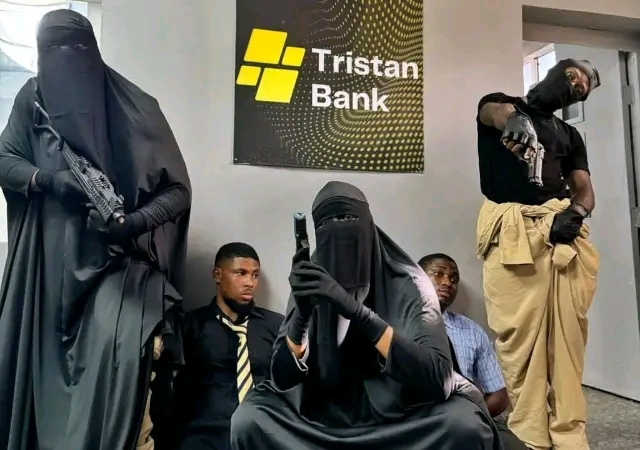We’ve all seen the backlash against Nancy Isime’s Instagram post about an upcoming movie. The National Film and Video Censors Board (NFVCB) has now contacted the producers over a scene involving a niqab in a robbery. The scene, shared by Isime, outraged many Muslims, leading to a call for the film’s ban. Nigeria is a deeply religious country, despite what Section 10 of our constitution suggests. The law in theory and the law in practice are often worlds apart.

MURIC’s Outcry
The Muslim Rights Concern (MURIC), through its Executive Director, Professor Ishaq Akintola, has labeled the movie “satanic.” According to MURIC, the film portrays Muslim women as criminals and incites public sentiment against them. This isn’t the first time religious groups have called for censorship in Nigerian cinema, and it likely won’t be the last.
Let’s not pretend we haven’t seen similar uses of the niqab in foreign films. Nigerian cinema is trying to be innovative, but can it do so without offending any religion? It’s a tiptoe walk that seems almost impossible.
NFVCB’s Stand
The NFVCB, through its Director General Shaibu Husseini, has stated that they are addressing the issue with the producers. Husseini confirmed that the movie hasn’t been released or submitted for classification. He emphasized that the NFVCB will not tolerate content that disrespects religious, cultural, or ethnic sensibilities.
But really, Husseini, where have you been? When Jade Osiberu released “Gangs of Lagos” in 2023, portraying assassins under the guise of Eyo masquerades, the Isale Eko Descendants Union (IDU) and the Oba of Lagos were outraged. They claimed the movie defamed and desecrated the Eyo masquerade. Yet, the same film was later used to highlight the rich cultural heritage of the Eyo.
And let’s not forget the church. Movies have depicted pastors as greedy, and the church has been shown in various negative lights. Reverend sisters’ attire has been used to portray evil. Christians have complained, but was anything done? Absolutely nothing.

The NFVCB’s Role
The NFVCB’s mandate, according to Act No.85 of 1993, is to classify all films and videos and ensure they respect religious, cultural, and ethnic sensibilities. The niqab, a face-covering garment leaving only the eyes visible, is a personal and cultural choice for many Muslim women. It symbolizes modesty and religious devotion. However, using it in a film scene shouldn’t automatically be seen as an attack on Islam.

Balancing Act
Should filmmakers constantly tiptoe around religious beliefs, or should they push creative boundaries? Can we ever achieve a 50-50 balance where art and respect coexist? Or will creative expression always clash with religious sentiments? It’s high time we drop the religious bias and allow filmmakers the freedom to explore, provided they do so responsibly.
What do you think? Can filmmakers and religious groups find a middle ground? Or are we sentenced to endless cycles of controversy and censorship? Share your thoughts.

















